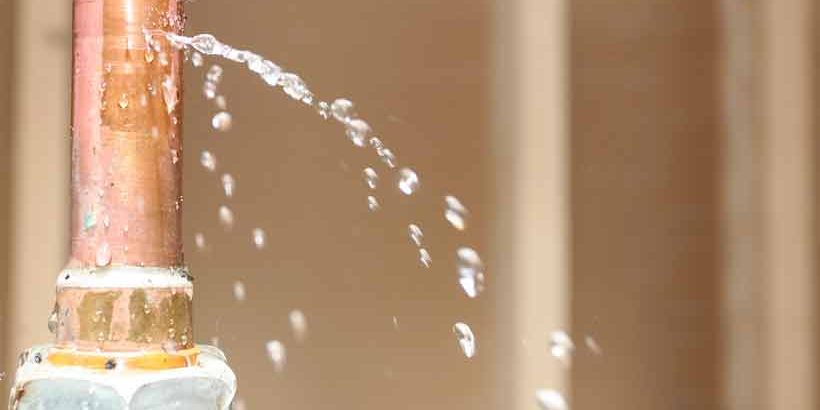A leaking boiler is quite a serious problem and indicates that an internal component such as a seal or valve is broken. The leak can lead to corrosion and rust or can cause electric components within the boiler to short circuit. It could even cause problems throughout your house, including structural damage. As such, leaking boiler repairs should be conducted as quickly as possible.
Determining the cause of a boiler leak can be a challenge and requires finding out exactly where the leak is originating. For example, is your boiler leaking water from the bottom or is the boiler leaking water from the inside?
Why is Your Boiler Leaking?
- If the boiler is leaking from the pressure valve, the pressure in the boiler may be too high. A boiler’s pressure should be between 18 and 21 PSI, or one bar, and when the pressure exceeds this value, the pressure relief valve should leak water to prevent the appliance from blowing up or rupturing. Limescale and other obstructions can cause the pressure to increase beyond safe limits. After this debris has been removed from the boiler, the valves will need to be resealed.
- If the boiler leak is coming from the temperature valve, the temperature of the boiler may be too high. This may be because of a fault with the temperature probe in the boiler.
- Corrosion is the main cause of many boiler leaks; corroded pipes and tanks will weaken and allow water to escape. If the corrosion is isolated to a single component, such as a valve, then you will need to have this valve replaced. However, if the corrosion is more widespread, your boiler may have to be scrapped as it will be beyond economical repair.
- If the gas boiler is leaking water around the pipe fittings, then it may have been installed badly.
- If the leak is coming from the seals of the boiler pump, then you may have to replace or reseal the pump.
Dealing with a boiler leaking water
Now that you know what is causing your boiler leaking water, you can take the next step. Some fixes are easy to do, but in most cases it’s best to call a Gas Safe registered engineer. Here are a few ways you can prevent further damage to your system before your engineer visits the property.
Leaking pipe fittings
If your boiler is leaking water around the pipe fittings, then there’s a possibility that it’s an installation fault. This issue is often found with new boilers if the engineer hasn’t properly sealed the pipe fittings. To check, dab the area dry then wait to see if the water appears again, if so a ¼ turn might do the trick. However, there’s a chance that the PTFE tape on the inside of the fitting might need checking, then it’s time to call the engineer.
Seals in the boiler pump
The most important aspect of a boiler is that the whole system is sealed. Over time, those rubber seals begin to harden or can be destroyed by elements moving through the heating system. This is mostly a common fault with old boiler systems, but it can also affect new boilers if the system has been running over pressure.
Maintain your boiler
As stated, many times and in numerous other posts, the maintenance of your boiler is highly paramount in its upkeep in saying that as you regularly maintain your boiler this situation may be less likely. Scheduled boiler services are an important element of this process as a gas safe registered engineer may be able to spot a fault before it becomes an issue as serious as a leak. Here at Home Response 360 we offer a boiler health check, completed by a Gas Safe registered engineer, just go to our services page and you’ll be able to book a boiler health check with a Gas Safe registered engineer. If you’re a landlord, it’s important to know that a boiler service should be included in your annual CP12 which is a legal requirement before and during a tenant’s residence at your property. The required checks include boilers, but they also cover other gas appliances such as stoves and fireplaces. If you’re a tenant it’s worth noting that landlords are not responsible for safety checks on gas appliances owned by you, or any flues that solely connect to your own gas appliances. More information regarding this can be found on our FAQ page and our article on ‘5 Reasons You Should Get Your Boiler Serviced’.







